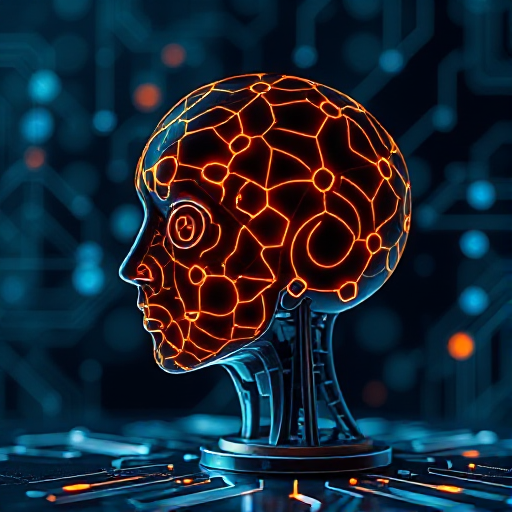
Artificial Intelligence (AI) is rapidly transforming industries, offering new opportunities in technology, healthcare, finance, and more. To keep up with this evolution, acquiring certifications in AI can be a strategic way to boost one’s career, enhance skills, and gain recognition in the field. This article explores the top AI certifications that can help professionals advance in their careers by providing valuable knowledge and practical expertise in AI technologies.
Why AI Certifications Matter
AI technologies are constantly evolving, and the demand for AI professionals continues to grow. Employers across various sectors seek qualified individuals who can harness the power of AI tools and techniques to drive innovation. AI certifications offer:
- Recognition of Skills: Certification acts as a proof of knowledge, helping professionals stand out in the competitive job market.
- Career Advancement: For those looking to transition into AI roles or enhance their current career, certifications provide a structured pathway.
- Skill Enhancement: AI certifications help individuals deepen their understanding of key concepts such as machine learning, neural networks, natural language processing (NLP), and computer vision.
- Industry Relevance: AI certifications are offered by reputable organizations and educational institutions, ensuring that the content is up-to-date and relevant to current industry needs.
Now, let’s look at some of the best AI certifications available today.
1. Google Professional Machine Learning Engineer
Provider: Google Cloud
Level: Advanced
Duration: Varies (typically around 3 months of preparation)
Google’s Professional Machine Learning Engineer certification is designed for professionals with a strong foundation in machine learning. It tests practical skills in building machine learning models, deploying models on cloud platforms, and managing machine learning solutions.
Key Areas Covered:
- Designing and developing ML models using Google Cloud
- Training models with TensorFlow and other Google tools
- Automating the ML lifecycle
- Interpreting and analyzing model outputs
- Optimizing model performance
This certification is ideal for engineers who are looking to expand their ML expertise and become proficient in leveraging Google Cloud for ML solutions.
2. Microsoft Certified: Azure AI Engineer Associate
Provider: Microsoft
Level: Intermediate
Duration: Varies (typically 4-6 weeks of preparation)
This certification focuses on using Azure services to build AI solutions. It’s perfect for professionals who wish to specialize in implementing AI models and maintaining AI-driven systems on the Azure platform.
Key Areas Covered:
- Implementing computer vision solutions using Azure
- Natural language processing (NLP) using Azure Cognitive Services
- Integrating AI models with data solutions
- Deploying and managing AI solutions on Azure
Azure AI Engineer certification is well-suited for individuals with a background in software development or data science.
3. IBM AI Engineering Professional Certificate
Provider: Coursera (offered by IBM)
Level: Beginner to Intermediate
Duration: 6 months (if studying at a moderate pace)
This is an excellent starting point for those looking to dive into AI engineering. The course covers machine learning, deep learning, and neural networks, providing learners with a solid foundation in AI tools and techniques.
Key Areas Covered:
- Python programming and libraries (Pandas, NumPy, TensorFlow, Keras)
- Machine learning algorithms and models
- Neural networks and deep learning concepts
- Natural language processing (NLP) techniques
- Working with real-world datasets
The IBM AI Engineering Professional Certificate is suitable for those starting in the field of AI and aspiring to become AI engineers.
4. Certified Artificial Intelligence Practitioner (CAIP)
Provider: Global Tech Council
Level: Beginner to Intermediate
Duration: 3-6 months
The CAIP certification is designed to validate AI expertise in areas such as machine learning, natural language processing, and robotics. It is targeted at both entry-level professionals and experienced individuals looking to demonstrate their AI skills.
Key Areas Covered:
- Fundamentals of machine learning and AI algorithms
- Data preprocessing and data analysis techniques
- Building AI models with Python and R
- Introduction to reinforcement learning and computer vision
This certification is an excellent option for professionals who want to gain a comprehensive understanding of AI concepts and practical implementation.
5. Stanford University Machine Learning Certificate
Provider: Stanford University (Coursera)
Level: Intermediate to Advanced
Duration: Approximately 11 weeks
Stanford’s Machine Learning Certificate, taught by renowned professor Andrew Ng, is one of the most recognized certifications in the AI industry. It provides a deep dive into machine learning, covering both theoretical foundations and practical applications.
Key Areas Covered:
- Supervised learning algorithms (linear regression, logistic regression, etc.)
- Unsupervised learning and clustering techniques
- Neural networks and deep learning
- Special topics in AI, including recommender systems and support vector machines
This course is best suited for professionals with some background in statistics or programming and who are looking for a thorough understanding of machine learning concepts.
6. DeepLearning.AI TensorFlow Developer Certificate
Provider: DeepLearning.AI
Level: Intermediate
Duration: 4 months (if studying part-time)
TensorFlow is one of the most popular deep learning frameworks used in AI. The TensorFlow Developer Certificate is ideal for individuals looking to specialize in using TensorFlow to build AI and machine learning models.
Key Areas Covered:
- TensorFlow basics and model building
- Training deep neural networks with TensorFlow
- Implementing computer vision and NLP applications
- Optimizing models for better performance
This certification is ideal for those looking to specialize in deep learning and TensorFlow applications.
7. AI and Machine Learning for Business
Provider: University of California, Berkeley (edX)
Level: Beginner to Intermediate
Duration: 4 weeks
This certification focuses on the application of AI and machine learning in the business context. It is ideal for business professionals who want to understand how AI can be used to drive decision-making, innovation, and business value.
Key Areas Covered:
- AI and machine learning concepts for business
- Practical use cases of AI in business settings
- Ethical considerations and the future of AI in business
This course is best suited for business leaders, managers, and consultants who need a high-level understanding of AI and its potential applications.
8. DataRobot AI Certification Program
Provider: DataRobot
Level: Intermediate to Advanced
Duration: Varies (based on experience)
DataRobot offers an AI certification program that focuses on building and deploying machine learning models using their automated machine learning platform. It is ideal for data scientists and AI engineers looking to gain proficiency in AI automation tools.
Key Areas Covered:
- Automating machine learning pipelines
- Building and deploying machine learning models at scale
- Managing and monitoring AI models in production
- Best practices in data science and machine learning
This certification is perfect for professionals working with large-scale data sets and looking to accelerate their machine learning workflows using DataRobot’s platform.
As the AI industry continues to grow, obtaining certifications in AI can significantly enhance one’s career prospects. Whether you’re looking to specialize in machine learning, deep learning, or AI deployment on cloud platforms, there are certifications to suit every skill level and area of interest. The top AI certifications listed above offer a combination of theoretical knowledge and practical application, making them a valuable investment for anyone pursuing a career in AI.
When choosing an AI certification, consider your current skill level, your career goals, and the tools and platforms you’re most interested in. With the right certification, you can stay ahead of the curve in the dynamic and rapidly evolving field of AI.






